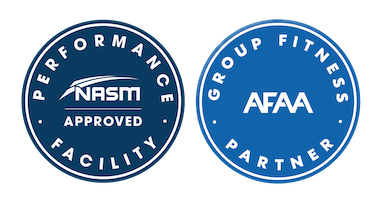The Power of Creatine: A Comprehensive Look at Safety, Benefits, and Emerging Research Pertaining to Youth Athletes
By Coach TJ, Owner of 4F Coaching
When it comes to supplements, few have been as extensively researched and scrutinized as creatine. Whether you’re an athlete looking to enhance performance, a student seeking cognitive support, or a parent concerned about safety for your child, creatine stands out as one of the most well-studied and versatile supplements available. Let’s explore its safety profile, key benefits, and the exciting new research that shows promise beyond muscle growth.
Creatine’s Longstanding Safety Record
Creatine has been researched for over 30 years and is one of the most studied supplements in history. A 2021 review published in Nutrients analyzed over 500 studies and confirmed that creatine is safe for both short- and long-term use, even in high doses. According to the International Society of Sports Nutrition (ISSN), “There is no compelling scientific evidence that creatine supplementation causes detrimental effects” in healthy individuals when taken at recommended doses is naturally found in foods like red meat and fish, and your body produces it in small amounts.” Supplementation simply ensures that levels are optimal, especially in individuals who may not consume enough dietary creatine.
Muscle Growth and Performance Enhancement
The most well-known benefit of creatine is its role in improving physical performance. Creatine works by increasing the availability of adenosine triphosphate (ATP), the primary energy currency of your muscles. Studies have consistently shown that creatine can enhance strength, power output, and muscle mass. A meta-analysis published in The Journal of the International Society of Sports Nutrition found that creatine supplementation significantly improves performance in high-intensity, short-duration activities.
For young athletes or adolescents lifting weights, creatine can be a valuable tool for improving athletic performance, provided they are engaged in a structured training program. Many professional sports organizations approve creatine use, highlighting its widespread acceptance and safety. It is not banned by any professional or collegiate organization.
Cognitive Benefits and Brain Health
Beyond muscle performance, creatine has shown promise in supporting brain health. A study in Frontiers in Neuroscience found that creatine supplementation can improve cognitive performance, particularly in tasks requiring short-term memory and quick decision-making . It appears to work similar in the brain as it does in muscles, by enhancing energy availability.
For students or those in mentally demanding roles, creatine could help improve focus, memory, and mental fatigue. Some research even suggests that creatine may benefit individuals with neurological conditions, including depression and traumatic brain injury.
Creatine and Neuroprotection: Fighting Dementia and Cognitive Decline
Recent studies have opened the door to an exciting new area of research: creatine’s potential role in preventing or slowing neurodegenerative diseases. A 2022 study published in Neurobiology of Aging found that creatine supplementation may help protect against age-related cognitive decline and support overall brain health . Researchers believe that by maintrgy metabolism in brain cells, creatine could play a role in preventing conditions like Alzheimer’s and dementia.
Additionally, a pilot study on older adults found that creatine supplementation, combined with exercise, improved cognitive function and physical strength, making it a promising tool for healthy aging.
Final Thoughts: Is Creatine Right for You, or Your Youth Athlete?
Creatine is a safe and effective supplement, especially if they are involved in regular physical training and following a balanced diet. The benefits extend far beyond muscle growth, supporting brain function and potentially even long-term health. As with any supplement, I recommend starting with a small dose (typically 3-5 grams per day) and ensuring adequate hydration, as creatine draws water into the muscles.
Given its extensive safety profile and a beyond extensive body of research, creatine is an excellent option for individuals of all ages looking to improve performance, brain health, and overall well-being. If you have any further questions or want guidance on dosage and timing, I’m here to help!
References
1. Kreider, R. B., et al. (2021). “International society of sports nutrition position stand: Safety and efficacy of creatine supplementation in exercise, sport, and medicine.” Nutrients.
2. Rawson, E. S., & Venezia, A. C. (2011). “Use of creatine in the elderly and evidence for effects on cognitive function in young and old.” Amino Acids.
3. Lanhers, C., et al. (2017). “Creatine supplementation and lower limb strength performance: A systematic review and meta-analyses.” The Journal of the International Society of Sports Nutrition.
4. Rae, C., & Broer, S. (2015). “Creatine as a booster for human brain function.

